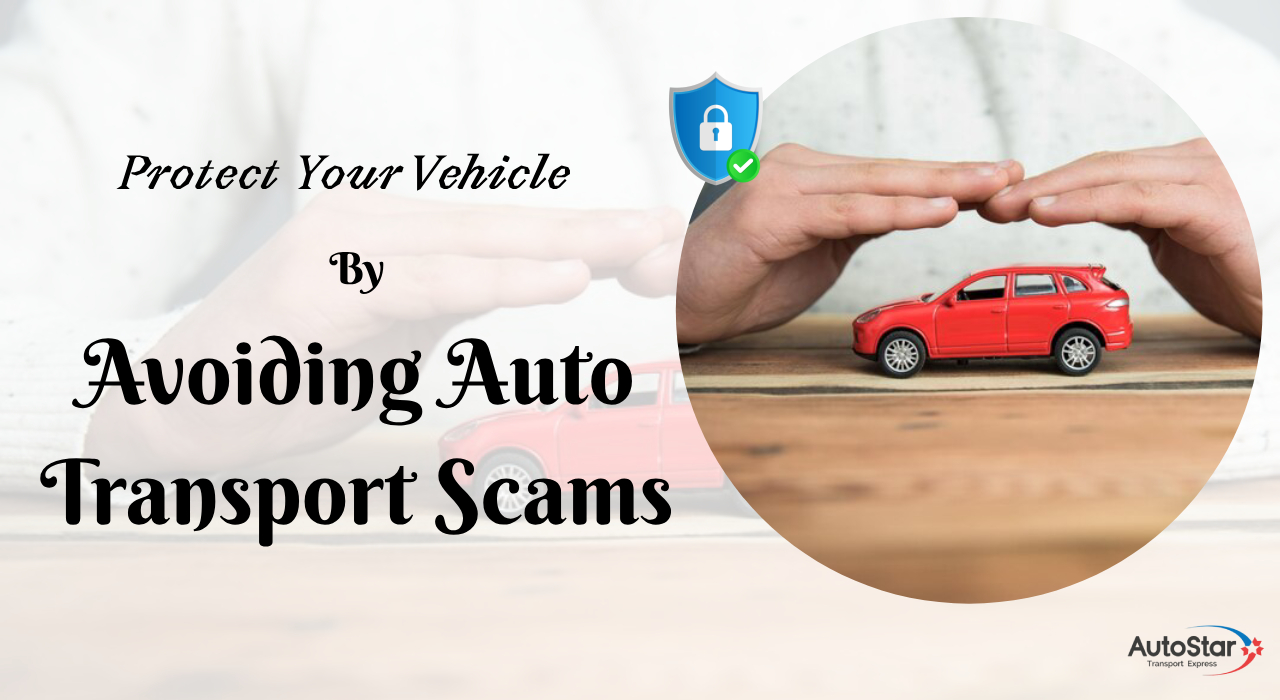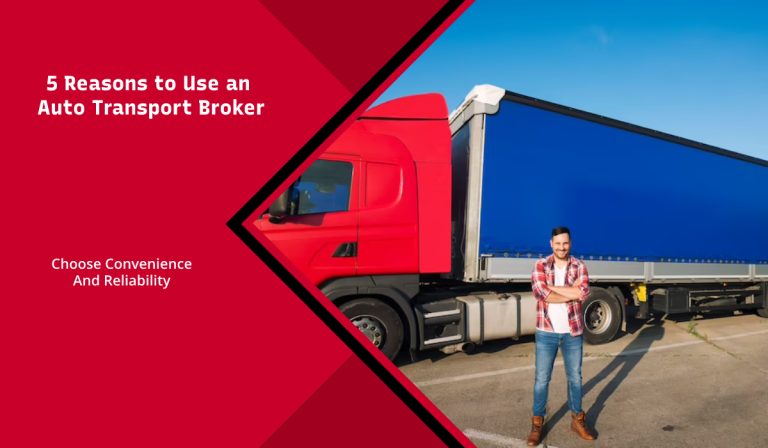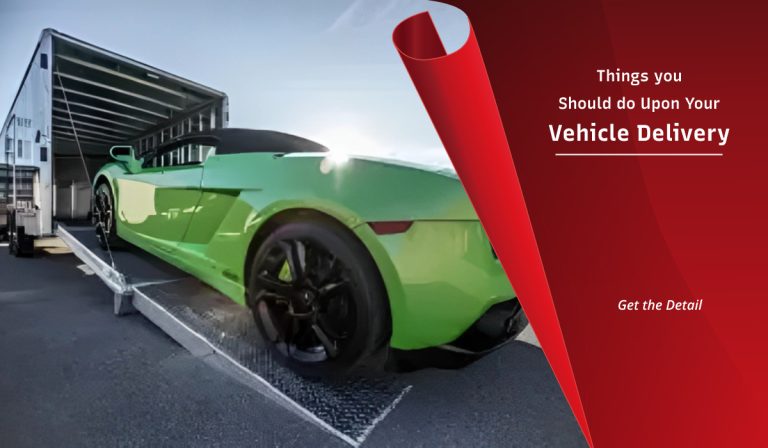
Transporting your vehicle across the country can be a convenient and cost-effective solution, but it’s essential to be aware of the risks associated with auto transport scams. Unscrupulous individuals and companies can deceive you, leading to the loss of your car and your hard-earned money.
To protect yourself and ensure a safe and secure car shipping experience, it’s crucial to understand how these scams operate and learn effective strategies to avoid falling victim to them.
To emphasize the magnitude of the issue, let’s explore some eye-opening statistics related to auto-shipping scams:
- According to the Federal Trade Commission (FTC), over 32,000 consumers filed complaints related to auto transportation in 2021, resulting in losses exceeding $37 million.
- The Better Business Bureau (BBB) reported a 21% increase in auto shipping scams between 2019 and 2020.
- In a survey conducted by a reputable classic car magazine, 7 out of 10 respondents reported experiencing or knowing someone who fell victim to an auto shipping scam.
- The American Moving and Storage Association (AMSA) estimated that 4,400 cases of vehicle fraud occurred in the United States in 2022, resulting in financial losses of over $10 million.
What are Auto Transport Scams and How it Works
Car shipping scams involve fraudulent individuals or companies misrepresenting themselves as legitimate car shipping service providers.
These scams can take various forms, but they often revolve around demanding upfront payment for services that are never rendered or offering poor-quality services at exorbitant prices.
To safeguard your interests and avoid falling prey to these scams, it is crucial to familiarize yourself with the different types of auto transport scams and the warning signs to look out for.
Do you Want to transport your Vehicle?
What Kinds of Scams Exist in Auto Transport?

Unrealistic Shipping Prices:
Some scammers entice customers with unrealistically low shipping prices, only to provide subpar services or disappear altogether.
How to avoid unrealistic shipping prices?
To avoid this, compare multiple shipping estimates and ensure they align with prevailing market prices for your specific area or distance.
Phishing Scam:
In a phishing scam, fraudsters impersonate legitimate car shipping companies and send deceptive emails or text messages, luring individuals to click on malicious links or provide personal information.
How to avoid phishing scams?
Always verify the authenticity of communication channels and avoid clicking on suspicious links or sharing personal details.
Insufficient Insurance:
Dishonest auto transport companies may claim to have insurance coverage for your vehicle during transit, but the coverage is inadequate or nonexistent.
How to avoid insufficient insurance?
Before selecting a car shipping provider, thoroughly research their insurance policies and confirm the extent of coverage to protect yourself from potential financial losses.
Nonexistent or Fake Companies:
Scammers may create fictitious auto transport companies or use the name of a legitimate company to deceive customers. They often advertise low prices to attract customers, collect upfront payments, and then disappear without providing any services.
How to avoid nonexistent or fake companies?
To avoid fake or nonexistent companies, research and verify the legitimacy of the auto transport company before making any payments or commitments.
Low-Ball Quotes:
Some fraudulent auto transport companies offer extremely low quotes to entice customers. Once hired, they may demand additional fees, claiming unforeseen circumstances or hidden costs. If the customer refuses to pay the additional charges, the vehicle may be held hostage until payment is made.
How to Avoid Low-Ball Quotes?
To avoid low-ball quotes, carefully compare and analyze multiple auto transport quotes, ensuring they are comprehensive and transparent. Additionally, research customer reviews and ratings to gauge the company’s reputation and reliability.
Bait and Switch:
In this scam, a company advertises a specific carrier or transport method to lure customers. However, once the vehicle is in their possession, they switch to a different carrier or method without the customer’s consent or knowledge. This may result in delays, damages, or additional charges.
How to avoid bait and switch?
Thoroughly research and compare prices and features of products or services before making a purchase to avoid falling for bait and switch tactics.
False Insurance Claims:
Dishonest auto transporters may claim to have comprehensive insurance coverage but provide fake or expired documents. In case of any damage or loss, they may refuse to take responsibility or compensate the customer.
How to avoid false insurance claims?
To protect yourself from false insurance claims, verify the legitimacy of the auto transporter’s insurance coverage by requesting valid and up-to-date insurance documents. It is also advisable to read customer reviews and seek recommendations to ensure the transporter has a reliable track record of honoring insurance claims.
Unreliable Brokers:
Some auto transport brokers may promise quality services but fail to deliver. They may subcontract the job to unreliable carriers, leading to delays, damages, or other issues.
How to Avoid Unreliable Brokers?
To avoid unreliable brokers, research and choose reputable auto transport brokers with positive customer reviews and a proven track record. Additionally, consider directly contacting and vetting carriers to ensure reliability and accountability throughout the transportation process.
Identity Theft:
Scammers may pose as legitimate auto transport companies and request personal information, including social security numbers, driver’s license details, or credit card information, under the guise of processing a reservation. They can then use this information for identity theft or other fraudulent activities.
How to avoid Identity Theft?
To avoid identity theft, only provide personal information to verified and trusted auto transport companies. Be cautious of sharing sensitive details online or over the phone, especially if the company’s legitimacy is uncertain. Always verify the company’s authenticity and ensure they have secure systems for handling personal information.
Phantom Pickup:
In this scam, the fraudulent company claims to have picked up the vehicle but provides no proof of the pickup. They may demand additional fees or refuse to deliver the vehicle until these fees are paid.
How to avoid phantom pickup?
To avoid the phantom pickup scam, ensure the auto transport company provides clear documentation and proof of vehicle pickup before making any additional payments. Verify their credibility and reputation by checking customer reviews and testimonials.
Damage Denial:
Dishonest transporters may damage a vehicle during transit but deny responsibility. They may insist that the damage was pre-existing or refuse to acknowledge any damage at all. It is crucial to thoroughly inspect your vehicle before and after transportation, and document any existing damage through photographs or written records.
How to Avoid Damage Denial?
To avoid damage denial, thoroughly inspect your vehicle before and after transport, documenting any existing damage with photos or written records. This will provide evidence in case the transporter denies responsibility for any new damages that may occur during transit.
Some scammers may use the transported vehicle for unauthorized purposes, such as personal errands or joyriding. This can result in mileage discrepancies, excessive wear, and tear, or damage to the vehicle.
How to Avoid Unauthorized Use?
To avoid unauthorized use, choose a reputable auto transporter with a solid track record and positive customer reviews. Additionally, consider securing a written agreement that prohibits any unauthorized use of your vehicle during transit.
Disappearing Act:
Fraudulent companies may vanish after collecting a deposit or payment from customers. They may stop responding to calls, emails, or other forms of communication, leaving the customer without their vehicle and without any means of recovering their money.
How to Avoid Disappearing Act?
To avoid being left stranded, research and select a reputable auto transport company with a well-established presence and positive customer feedback. Prioritize companies with transparent communication and reliable customer support to minimize the risk of disappearing acts.
Ransom Demand:
Scammers may intentionally delay the delivery of the vehicle and then demand an exorbitant amount of money as ransom to release it. They may claim unexpected difficulties or demand additional fees to release the vehicle promptly.
How to avoid ransom demand?
To protect yourself from ransom demands, choose a reputable auto transport company with a track record of timely deliveries and clear communication. Prioritize companies that provide written agreements specifying delivery timelines and costs to minimize the risk of extortion attempts.
Unlicensed Carriers:
Some scammers operate as unlicensed carriers, offering lower prices to attract customers. However, they may lack the necessary permits, insurance, or qualifications to transport vehicles legally and safely. Using an unlicensed carrier increases the risk of damage, loss, or other complications.
How to avoid unlicensed carriers?
To avoid unlicensed carriers, always verify the credentials and licenses of the auto transport company before booking. Choose licensed carriers that comply with industry regulations, ensuring your vehicle is transported by qualified professionals and minimizing the potential for issues or legal complications.
Fake Reviews and Testimonials:
Dishonest companies may create fake positive reviews or testimonials on their website or other online platforms to enhance their credibility. These reviews can mislead customers into believing that the company is reputable and trustworthy when it may not be.
How to avoid Fake Reviews and Testimonials?
To avoid falling for fake reviews, do thorough research on multiple platforms and sources to gather authentic feedback from genuine customers. Look for consistent patterns in reviews and consider reviews from reputable sources or trusted individuals for a more accurate assessment of the company’s reputation.
Misleading Terms and Conditions:
Scammers may include vague or ambiguous terms in their contracts to manipulate customers. These terms may allow the company to change pricing, delivery dates, or other critical aspects of the service without prior notice or customer consent.
How to Avoid Misleading Terms and Conditions?
To avoid being misled by deceptive terms and conditions, carefully review and understand the contract before signing. Seek clarification on any ambiguous clauses and ensure that all important details, such as pricing, delivery dates, and service guarantees, are clearly stated and agreed upon in writing.
Vehicle Switch:
In this scam, the scammers substitute the customer’s vehicle with another one during transit. They may either sell the original vehicle or use it for their purposes, leaving the customer unaware of the switch until the delivery is made.
How to avoid vehicle switches?
To prevent falling victim to a vehicle switch scam, ensure that you thoroughly inspect your vehicle before handing it over for transport and document its unique identifying features. Stay in regular communication with the transport company throughout the process and verify the vehicle’s condition upon delivery to confirm its authenticity.
Non-Delivery and Abandonment:
Fraudulent companies may accept a customer’s vehicle for transportation but never deliver it to the intended destination. They may abandon the vehicle at a remote location or sell it without the owner’s consent.
How to avoid Non-Delivery and Abandonment?
To avoid non-delivery and abandonment scams, research transport companies, choose reputable ones, and have a written agreement with delivery details and consequences for non-delivery.
Fake Escrow Services:
Scammers may pose as legitimate escrow services, offering a secure platform for payment transactions. However, they may redirect customers to a fake website or use a fraudulent escrow service to collect payments. Once the payment is made, they disappear without arranging the vehicle transportation.
How to Avoid Fake Escrow Services?
To avoid fake escrow services, verify the legitimacy of the escrow service provider independently and use reputable and established platforms for payment transactions. Be cautious of any redirections to unfamiliar websites or suspicious payment processes.
Unnecessary Upgrades or Add-Ons:
Some dishonest companies may pressure customers into purchasing unnecessary upgrades or add-on services, such as expedited shipping or additional insurance coverage. They may use high-pressure sales tactics or misrepresent the importance of these services to extract more money from customers.
How to avoid unnecessary upgrades or add-ons?
To avoid unnecessary upgrades or add-ons, carefully evaluate the services offered, research their value independently, and be cautious of high-pressure sales tactics that push for additional purchases. Stick to your original requirements and only pay for services that are essential and align with your needs.
Stolen Vehicle:
In rare cases, scammers may outright steal the vehicle instead of transporting it. They may either use fraudulent documentation or gain access to the vehicle during transit and disappear with it.
How to Avoid Stolen Vehicles?
To prevent vehicle theft, thoroughly research and choose reputable auto transport companies with positive reviews. Verify their credentials and track record before entrusting your vehicle. Additionally, consider using tracking devices or requesting updates during the transportation process for added security.
Fraudulent transport companies may subcontract the job to unqualified or unreliable carriers without the customer’s knowledge or consent. This can lead to delays, poor handling of the vehicle, or even loss of the vehicle.
How to Avoid Unauthorized Subcontracting?
To avoid unauthorized subcontracting, ensure that the auto transport company explicitly states in the contract that they will not subcontract the job without your consent. Additionally, research and choose reputable companies known for handling their own transportation operations to minimize the risk of unauthorized subcontracting.
Online Classifieds Scams:
Scammers may post fake auto transport ads on online classified platforms, offering unbelievably low prices to attract customers. They may request payment upfront and then disappear without providing any transportation services.
How to Avoid Online Classifieds Scams?
To avoid online classifieds scams, exercise caution when dealing with ads offering unusually low prices. Verify the legitimacy of the auto transport service by conducting thorough research, checking customer reviews, and ensuring secure payment methods before making any upfront payments.
Hijacked Shipments:
In this scam, dishonest carriers may divert or hijack the shipment of vehicles during transit. They may sell the vehicles or demand a ransom for their safe release. This can result in significant financial losses for both the customer and the legitimate carrier.
How to avoid Hijacked Shipments?
To avoid hijacked shipments, choose reputable and licensed carriers with a proven track record. Ensure the carrier has robust security measures in place and consider using tracking services to monitor the shipment’s progress and location.
Hidden Fees and Charges:
Some unscrupulous auto transport companies may advertise low prices but include hidden fees and charges in the final bill. They may add costs for fuel surcharges, insurance fees, storage fees, or other miscellaneous charges that were not initially disclosed.
How to Avoid Hidden Fees and Charges?
To avoid hidden fees and charges, carefully review the company’s terms and conditions before booking. Seek clarification on any potential additional costs and ensure they are clearly stated in writing. Compare quotes from multiple companies to make an informed decision and choose a transparent and reputable provider.
Fake Licensing and Certification:
Scammers may present forged or expired licensing and certification documents to appear legitimate. It’s essential to verify the authenticity of these documents by cross-checking with the relevant authorities or licensing bodies.
How to Avoid Fake Licensing and Certification?
To avoid fake licensing and certification, independently verify the documents provided by the transport company with the appropriate authorities or licensing bodies. Ensure that the licenses and certifications are current and valid before entrusting your vehicle to their services.
Stolen Deposits:
Dishonest companies may request a deposit upfront but never provide the transportation service. They may disappear with the deposit, leaving the customer without their money and without their vehicle being transported.
How to Avoid Stolen Deposits?
To avoid deposit scams, be cautious of companies requesting upfront deposits and thoroughly research their reputation and credibility. Consider using reputable companies that offer secure payment options and a track record of reliable service to minimize the risk of losing your deposit and vehicle.
Pressure Tactics:
Some fraudulent transporters may use high-pressure tactics to coerce customers into making quick decisions. They may create a sense of urgency, claiming limited availability or imminent price increases, to push customers into hiring their services without conducting proper research.
How to avoid Pressure Tactics?
To avoid falling for pressure tactics, take your time in making a decision, and don’t be rushed into hiring a transporter. Research multiple companies, compare their services and prices, and read customer reviews to ensure you choose a reputable and reliable auto transporter that meets your needs.
Door-to-Door Delivery Scam:
Scammers may promise door-to-door delivery but later claim that the destination is inaccessible or restricted. They may demand additional fees for an alternative drop-off location or force customers to retrieve their vehicles from a distant and inconvenient location.
How to Avoid Door-to-Door Delivery Scam?
To avoid the door-to-door delivery scam, ensure to clarify the delivery terms and confirm that the destination is accessible and within the agreed-upon terms. Beware of any sudden requests for additional fees or changes to the delivery location, and consider choosing a reputable auto transporter with a track record of reliable door-to-door service.
Impersonation of Legitimate Companies:
Fraudsters may impersonate well-known and reputable auto transport companies to gain trust and deceive customers. They may use similar logos, and website designs, or even make phone calls pretending to be representatives of a legitimate company.
How to Avoid Impersonation of Legitimate Companies?
To avoid impersonation scams, verify the company’s authenticity before engaging. Check contact details, website, and communication channels for consistency with the legitimate company. Contact the company directly using official information to confirm their identity.
Poor Quality Equipment:
Some scammers may use outdated or poorly maintained transport trucks, leading to vehicle damage, breakdowns, or accidents during transit.
How to Avoid Poor Quality Equipment?
To avoid poor quality equipment, research and choose reputable auto transport companies that prioritize well-maintained and modern transport trucks. Read customer reviews and inquire about their fleet and maintenance practices to ensure the safe transportation of your vehicle.
Unregistered or Uninsured Carriers:
Fraudulent transporters may operate without proper registration or insurance coverage. They may claim to offer low prices but lack the necessary legal requirements to transport vehicles. This puts the customer’s vehicle at risk in case of accidents, damages, or theft.
How to avoid Unregistered or Uninsured Carriers?
To avoid unregistered or uninsured carriers, verify the credentials of the transporters by requesting proof of registration and insurance coverage. Ensure that they comply with legal requirements to protect your vehicle from potential risks and liabilities.
Misrepresentation of Services:
Scammers may misrepresent the services they offer to deceive customers. For example, they may claim to provide enclosed transport for a higher level of protection but actually transport the vehicle on an open carrier without the customer’s knowledge or consent.
How to Avoid Misrepresentation of Services?
To avoid misrepresentation of services, thoroughly review the contract and confirm the transport method before hiring. Request written confirmation of the agreed-upon services to ensure they align with what was discussed, preventing any deceptive practices.
Non-Existent Tracking Systems:
Some fraudulent companies may claim to have advanced tracking systems that allow customers to monitor the progress of their vehicles in real-time. However, these tracking systems may be fake or non-existent, leaving customers in the dark about the whereabouts of their vehicles.
How to Avoid Non-Existent Tracking Systems?
To avoid non-existent tracking systems, research the company’s tracking capabilities and ask for specific details about their tracking system. Verify their claims by checking reviews or contacting previous customers who have used their tracking services to ensure their reliability and accuracy.
Scammers may change the agreed-upon pickup or delivery dates without prior notice or customer consent. This can cause inconvenience, disruptions to travel plans, or additional expenses for the customer.
How to Avoid Unauthorized Changes to Pickup or Delivery Dates?
To avoid unauthorized changes to pickup or delivery dates, ensure that the agreed-upon dates are clearly specified in the contract and confirm with the company that any changes require your consent in advance. Stay in regular communication with the transport company to stay informed about any updates or adjustments to the schedule.
Counterfeit Credentials:
Dishonest transporters may provide counterfeit or altered credentials, such as insurance certificates or licensing documents, to appear legitimate. It’s important to verify the authenticity of these credentials with the respective authorities or organizations.
How to avoid Counterfeit Credentials?
To avoid counterfeit credentials, verify the authenticity of the transporter’s documents by contacting the relevant authorities or organizations directly. Don’t solely rely on the documents provided by the company and ensure they are legitimate and up to date.
Fake Customer Support:
Scammers may provide fake customer support numbers or email addresses, posing as representatives of the company. They may provide false updates or reassurances to manipulate customers into believing that their shipment is in progress, even if it’s not.
How to Avoid Fake Customer Support?
To avoid fake customer support, verify the contact information provided by the company independently and cross-check it with their official website or reputable sources. Avoid relying solely on the contact details given by scammers to ensure you’re dealing with genuine representatives.
Online Payment Scams:
Fraudsters may request payment through unconventional methods, such as wire transfers or untraceable cryptocurrency, to avoid accountability. It’s important to use secure and traceable payment methods and be cautious when dealing with unfamiliar payment requests.
How to Avoid Online Payment Scams?
To avoid online payment scams, use secure and traceable payment methods like credit cards or reputable online payment platforms. Be wary of requests for unconventional payment methods and exercise caution when dealing with unfamiliar payment requests to protect your financial security.
Shipment Mix-Up:
In rare cases, scammers may transport multiple vehicles together and deliver them to the wrong customers. This can lead to confusion, delays, and difficulties in locating and retrieving the correct vehicle.
How to Avoid Shipment Mix-Up?
To avoid shipment mix-ups, verify the identity of the carrier and ensure clear documentation of your vehicle’s details. Thoroughly inspect the vehicle upon delivery to confirm its accuracy and report any discrepancies immediately to resolve the issue.
False Damage Claims:
Dishonest transporters may falsely claim that the vehicle sustained damage during transit to extort money from customers. They may exaggerate or fabricate damages and demand immediate payment for repairs or compensation.
How to avoid False Damage Claims?
To prevent false damage claims, document your vehicle’s condition before and after transportation and consult professionals if any claims arise.
Inadequate Communication:
Scammers may intentionally provide limited communication, avoid answering customer inquiries, or fail to provide updates on the status of the shipment. This lack of communication can create anxiety and uncertainty for customers who are left in the dark about their vehicle’s transportation progress.
How to avoid False Damage Claims?
To avoid inadequate communication, choose reputable transporters with clear communication channels and responsive customer support. Stay informed about the progress of your shipment by regularly requesting updates from the company.
Fake Proof of Delivery:
Some fraudulent companies may provide customers with forged or doctored proof of delivery documents to falsely claim that the vehicle has been delivered. They may do this to demand final payment or to hide the fact that the vehicle has not been transported at all.
How to avoid Fake Proof of Delivery?
To avoid fake proof of delivery, thoroughly verify the authenticity of the documents provided by the transport company. Cross-reference the information with tracking systems, contact the supposed delivery location, and ensure the vehicle is physically present before making any final payments.
False Claims of Industry Affiliations:
Scammers may falsely claim to be affiliated with industry organizations or regulatory bodies to gain trust. They may display logos, seals, or certifications on their website or promotional materials without actually being a member or meeting the required standards.
How to Avoid False Claims of Industry Affiliations
To avoid false claims of industry affiliations, independently verify the company’s affiliation with the claimed organizations. Check the official websites or contact the organizations directly to ensure the company’s legitimacy and adherence to industry standards.
Fraudulent transporters may use the customer’s vehicle for personal use, such as running errands or renting it out, without the customer’s knowledge or consent. This unauthorized usage can result in additional mileage, wear, and tear, or damages to the vehicle.
How to Avoid Unauthorized Vehicle Usage?
To prevent unauthorized vehicle usage, thoroughly research and choose reputable transporters with positive reviews and a proven track record. Ensure clear terms and conditions regarding the vehicle’s usage are agreed upon and documented in the contract to protect against unauthorized activities.
Unresponsive or Nonexistent Customer Service:
Scammers may provide non-existent or unresponsive customer service, making it difficult for customers to address concerns, request updates, or resolve issues related to their vehicle transportation.
How to avoid Unresponsive or Nonexistent Customer Service?
To avoid unresponsive or nonexistent customer service, choose transport companies with reliable customer support and verified contact information. Read reviews and seek recommendations to ensure prompt and effective communication throughout the transportation process.
We have an A+ rating in BBB and 20+ review platforms.
Compromised Vehicle Security
In some cases, dishonest transporters may compromise the security of the vehicles they transport. They may allow unauthorized individuals access to the vehicles or fail to properly secure the vehicles, leading to theft, vandalism, or damage.
How to Avoid Compromised Vehicle Security?
To avoid compromised vehicle security, select reputable transporters with a proven track record of prioritizing vehicle safety and security measures. Conduct thorough research, read customer reviews, and inquire about the transporter’s security protocols before entrusting them with your vehicle.
Unauthorized Vehicle Modifications: Fraudulent transporters may make unauthorized modifications to the customer’s vehicle without their knowledge or consent. This can include adding aftermarket parts, changing the vehicle’s appearance, or altering its condition without proper authorization.
To prevent unauthorized vehicle modifications, choose trustworthy transporters who respect your vehicle’s integrity and seek explicit consent before making any modifications. Clearly communicate your expectations regarding the condition and appearance of your vehicle to ensure it remains unchanged during transportation.
Ship your Car with a Trusted Company?
How Can You Recognize and Avoid Scams Related to Car Shipping?
Knowing how to identify and avoid auto transport scams is crucial to safeguarding your interests and ensuring a smooth shipping process. By following these essential guidelines, you can significantly reduce the risk of falling victim to fraudulent activities:
Firstly Know What to Expect from a Service Provider:
- Direct carriers: These are companies that own and operate their own fleet of carriers, offering end-to-end transportation services.
- Car shipping brokers: Brokers act as intermediaries between customers and carriers, facilitating the shipping process.
- Auto transport management companies: These companies provide logistics and coordination services for shipping your vehicle. Understanding these different service providers will help you make informed decisions.
Before you make a booking:
- Shop around and do your research: Obtain multiple quotes from reputable car shipping companies and compare their services and prices.
- Gather information on the car transport company: Conduct thorough research on the company’s background, reputation, and industry experience.
- Browse their website: A professional and informative website can be an indicator of a legitimate business.
- Check for contact information: Verify the availability of contact details, such as a valid phone number and email address.
- Check for auto transport reviews: Read reviews and testimonials from previous customers to gauge the company’s reliability and customer satisfaction.
- Check with the Better Business Bureau: Visit the BBB website to check if any complaints or negative reports have been filed against the company.
- Check payment methods: Be cautious of companies that insist on upfront payment or wire transfers, as these methods offer limited recourse in case of fraud.
During the booking process:
- Get a written contract: Request a detailed written contract that outlines the terms and conditions of the car shipping service, including pickup and delivery dates, insurance coverage, and payment details. Review the contract carefully before signing it.
- Verify insurance coverage: Ask for proof of insurance coverage and ensure it meets your requirements. Don’t hesitate to contact the insurance provider directly to verify the policy’s validity.
- Avoid large upfront payments: Be cautious of companies that demand a significant upfront payment. Legitimate car shipping companies usually require a small deposit or payment upon delivery.
- Pay with a secure method: Use secure payment methods such as credit cards or payment platforms that offer fraud protection. Avoid cash payments or wire transfers, as they are difficult to trace in case of fraud.
Before vehicle pickup:
- Document the condition of your vehicle: Take detailed photographs of your vehicle from different angles and note any existing damages. This documentation will serve as evidence in case of any disputes about the vehicle’s condition upon delivery.
- Remove personal belongings: Remove any valuable items or personal belongings from the vehicle before shipping. Auto transport companies typically do not cover loss or damage to personal items left inside the vehicle.
During vehicle pickup and delivery:
- Verify the carrier: When the carrier arrives for pickup, verify their identity and check if they have the proper licensing and documentation.
- Inspect the vehicle: Thoroughly inspect your vehicle with the carrier and note any damages or discrepancies on the Bill of Lading or inspection report.
- Keep communication open: Maintain regular communication with the carrier throughout the shipping process to stay informed about the progress and any changes in the delivery schedule.
In case of a scam, problem or dispute:
-
- Report issues promptly: If you notice any problems or damages upon delivery, report them to the auto transport company immediately. Document the issues with photographs and written descriptions.
- Contact the company: Reach out to the car shipping company to discuss the problem and seek a resolution. Most reputable companies will work with you to address any legitimate concerns.
- File a complaint if necessary: If the company fails to address your concerns or resolve the issue, consider filing a complaint with relevant consumer protection agencies, such as the Federal Motor Carrier Safety Administration (FMCSA), the Better Business Bureau (BBB), or the Department of Transportation (DOT).
- Seek legal advice if needed: In severe cases where your vehicle has been damaged or lost due to negligence or fraudulent activities, consult with a lawyer specializing in transportation law to explore your legal options and protect your rights.
Auto transport with Top Rated Company?
Conclusion:
By immersing yourself in the world of auto transport scams and equipping yourself with the knowledge of various deceitful tactics, you can shield yourself from the clutches of fraudsters and navigate the shipping landscape with confidence.
Take the time to delve into the realm of reputable car shipping companies, sifting through their offerings and scrutinizing their track records.
Make it a habit to meticulously examine every line of the contracts you encounter, ensuring that every detail aligns with your expectations.
Don’t forget to capture your vehicle’s condition through the lens of a camera, preserving tangible evidence that can serve as your shield in case of any unexpected discrepancies.
And above all, remain ever-vigilant throughout the entire shipping process, for it is through your watchful eyes that you can secure a truly safe and secure journey for your beloved car.
Automobile transport with Us?
FAQ’s
How do car scams operate?
Car scams operate by deceptive individuals or groups who aim to defraud people in various ways. They may use false advertisements, counterfeit documents, or other fraudulent methods to deceive buyers or sellers and gain financial advantage unlawfully.
What types of scams are associated with cars?
There are several scams related to cars, including:
- Title washing: Fraudsters alter a vehicle’s title to conceal its true histories, such as previous accidents or damage.
- Odometer rollback: Scammers manipulate an odometer reading to make a used car appear to have lower mileage than it actually does.
- Salvage fraud: Dishonest sellers misrepresent salvage or rebuilt vehicles as being in better condition than they are.
- Fake escrow services: Scammers set up fake escrow services to convince buyers to deposit money for a car that doesn’t exist or isn’t as described.
- Online vehicle sales scams: Fraudsters post fake listings or use stolen identities to lure buyers into paying for cars that they never receive.
Which auto transport company is considered the most reliable?
It is difficult to determine a single auto transport company as the most reliable, as reliability can vary based on individual experiences and specific circumstances. However, there is a reputable auto transport company known for its reliability called AutoStar Transport Express. It’s recommended to research and compare multiple companies, read reviews, and consider factors like pricing, insurance coverage, and customer satisfaction to make an informed decision.
How can I verify if a shipping company is legitimate?
To determine if a shipping company is legitimate, consider the following steps:
- Research the company: Conduct thorough research on the company’s background, reputation, and industry experience.
- Check official registration: Verify if the company is registered with appropriate transportation authorities or has the necessary licenses.
- Read reviews and testimonials: Look for feedback from previous customers to gauge the company’s reliability and customer satisfaction.
- Check with regulatory agencies: Contact relevant authorities or organizations, such as the Federal Motor Carrier Safety Administration (FMCSA), to confirm the company’s legitimacy.
- Review the company’s website and contact information: A professional website and easily accessible contact details can be indicators of a legitimate business.
- Trust your instincts: If something seems suspicious or too good to be true, exercise caution and consider alternative options.







